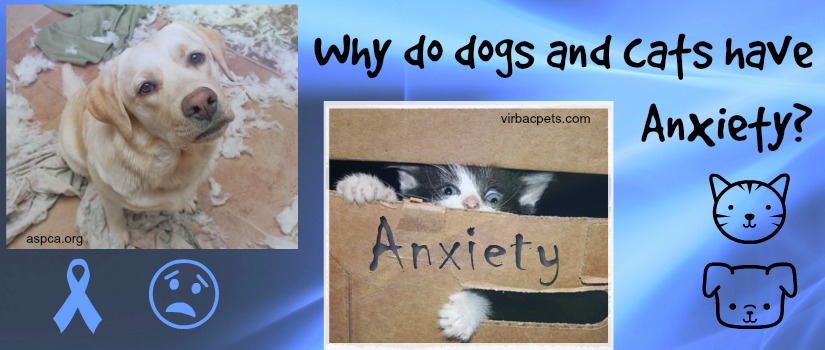
Many of us have heard of dogs being afraid of thunderstorms or cats that hate the water, but these aren’t the only causes of stress in our pets. Each pet may have his or her own unique phobias and stressors, but here are some of the big causes of anxiety.
1) Fear after a bad experience: If you adopted a dog from a shelter who had been used in dog fighting, it is logical when said dog is afraid of all the other dogs on the block. If that cat you were hoping to take home came from a place where he was abused by a woman, it would be understandable if the cat runs and hides from unfamiliar women. You may know the puppy you adopted at 8 weeks old is afraid of bees after being stung on the nose, but when adopting an older pet, we don’t always know their full history or background so their fears may seem irrational to us.
2) Lack of socialization: Exposure to environmental and social situations at a young age allows puppies and kittens to learn what is “normal” in our world and what is not. When pets are not socialized during their peak socialization periods (which are different in cats vs dogs), they may become regularly timid, anxious, or fearful.
3) Separation anxiety: This may occur if a pet has been re-homed or had multiple owners and now the pet is afraid of being abandoned (or returned to the shelter) by its new owners. This can also occur if two puppy littermates are adopted together and then later separated as adults as they can often form bonds stronger to each other than to their owners.
4) Medical conditions: Certain illnesses, toxic substances, and physical conditions can cause anxiety in your pets. Dementia may cause your pet to forget familiar people or situations, causing stress. Some dogs with seizures may see imaginary/hallucinogenic threats and trigger anxiety as a result.
Regardless of if you know your pet’s anxiety triggers or not, it is best to talk to your veterinarian about his or her symptoms and rule out any medical conditions that may be causing them. An anxious pet is not a happy one, and even if your pet’s anxiety is fear-based, we recommend that you schedule an appointment with your veterinarian to discuss options to help your pet relax and prevent future panic attacks or stress.
Does your pet have anxiety? What stress relievers have worked for you?

